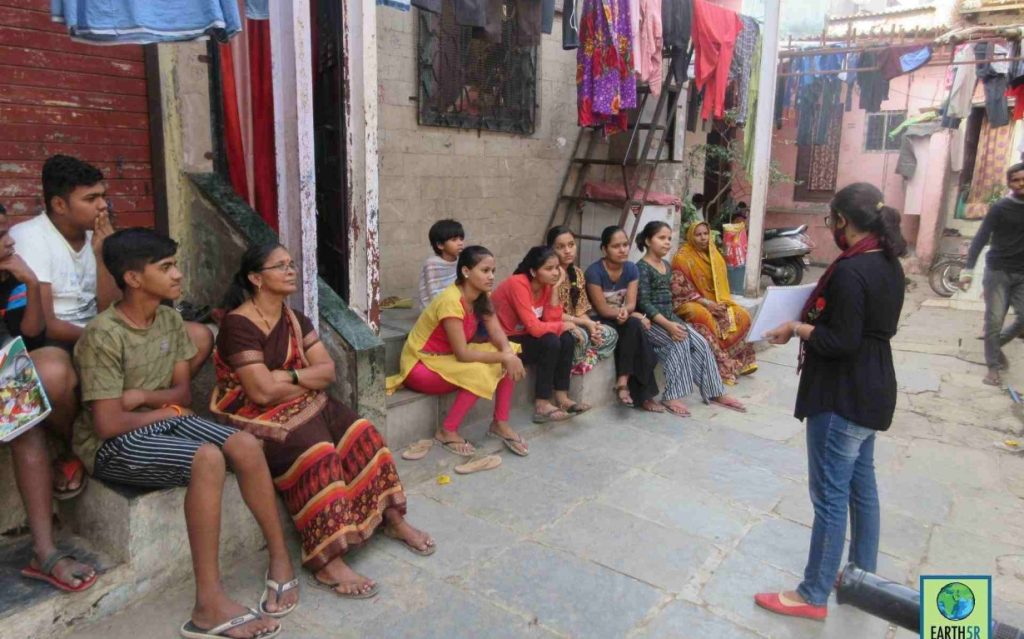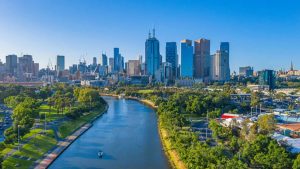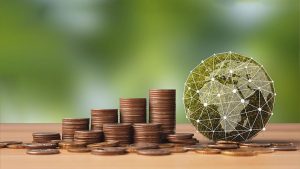
Circular Economy In 4 Steps: Home Equals Planet Community Training Program At Mumbai
Mumbai produces 7,500 tonnes of waste daily, that’s equivalent to the weight of 70 Blue Whales
Mumbai has been consistently ranked as the biggest generator of Municipal Solid Waste (MSW) in India. This figure shows an evident impact in the densely populated areas of Mumbai where people live in shanties and unplanned neighbourhoods.
One such neighbourhood is at Kurla, Mumbai where over 400,000 people live without access to proper sanitation and waste management system. The lack of a disposal system compels them to dispose of their garbage on the streets.
The neighbourhood of Kurla generates close to 20 tonnes of recyclable waste every day
To combat the severe waste management issue which is affecting the health of the people and the environment, Earth5R is working with the locals to put a circular economy based solution in action.
THE HOME EQUALS PLANET PROJECT BASED ON CIRCULAR ECONOMY
Circular Economy is an economic system which keeps the resources in circulation while generating monetary benefits for the community.
The Home Equals Planet program devised by Earth5R helps the residents recognize the potential of their wastes by encouraging them to follow simple action-based steps. These steps do not only help with managing wastes but they also help generate monetary and health benefits for the people.
The following are few of the 15 actions practised under the Home Equals Planet Program:
- Waste Management
The residents are taught to segregate their wastes into wet waste and dry waste (recyclables and non-recyclables). This helps in making the optimum use of these wastes and ensures proper disposal.
- Composting
A large percentage of waste generated in Indian households is the wet (organic) waste. This waste produces a large amount of greenhouse gas upon degradation in landfill conditions. The residents are trained to properly compost their wet waste which is better for the environment, beneficially for the community and also has the potential of generating income for the families.
600 tonnes of Organic Waste is processed per month by community-based decentralised organic waste management program of Earth5R
- Upcycling and repurposing
A huge part of the trash, like fabrics, papers, and plastics, could be repurposed and upcycled to make new products with minimal processing. These products could be sold to generate income for the members of this community while simultaneously reducing the waste.
The Earth5R volunteers conduct this skill development training under the Livelihood Program which encourages the people of the community – especially the women – to become financially independent.
- Recycling
The action of waste segregation further helps in optimizing the collection of recyclables like glass, plastics, and paper. Members of the community dealing with informal waste management systems, like the rag pickers, are involved in managing the recyclables which are collected at the end of the segregation activity. This not only ensures no resource is lost to the landfills but also helps in generating income for the people involved.
ABOUT EARTH5R
Earth5R is an environmental organization from India with its head office at Mumbai. It works with the NGO sector, Companies and helps them conduct environmental Corporate Social Responsibility (CSR) programs across India.
Earth5R specializes in circular economy based projects. Earth5R also offers short term and long term environmental courses and fellowships.
– Reported by Riya Dani




